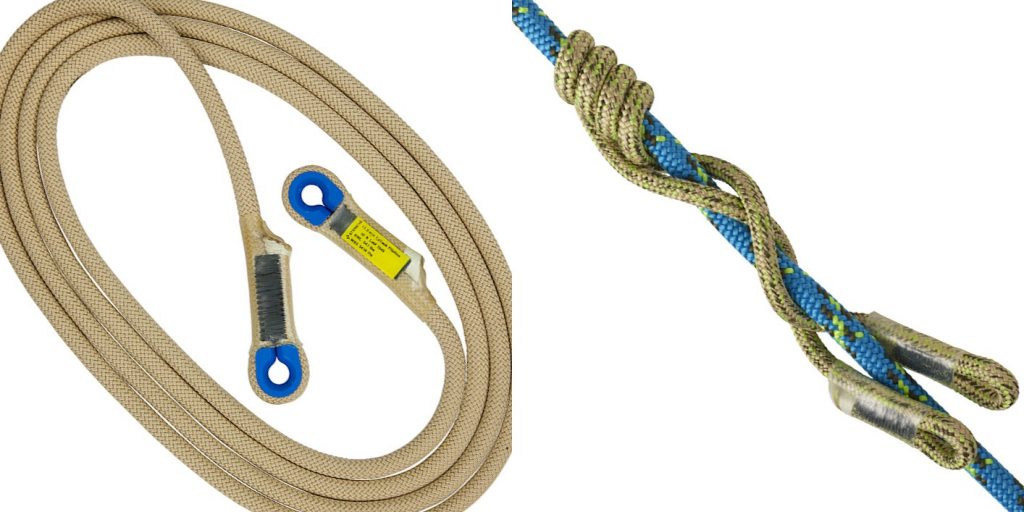Sterling’s Fliplines and Prusiks are very advanced products featuring incredibly high tech materials. In this blog post we’ll look at what those materials, what they are made of and the advantages they give.

Sterlings fliplines and prussics use very high tech materials
Sterling’s TriTech Flipline is the most advanced of the Arbor flipline series. Featuring unique Technora™ sheath, Dyneema™ inner jacket and a nylon core this high strength, supple and durable product is great for arborists and work positioning.
Sterling’s Flex Hitch cords use a blended Technora®/polyester sheath that provides solid abrasion resistance with enough bite to hitch firmly onto ropes while their RIT (Right In Trees) Prusiks are constructed with a Twaron® sheath and nylon core for heat resistance and durability.
Technora is an aramid that is useful for a variety of applications that require high strength or chemical resistance. It was also used to suspend the NASA Mars rover Opportunity from its parachute during descent.
Twaron is a para-aramid. It is a heat-resistant and strong synthetic fibre developed by the Dutch company AKZO.
Aramid fibers are a class of heat-resistant and strong synthetic fibers. They are used in aerospace and military applications, for ballistic-rated body armor fabric and ballistic composites, in bicycle tires, and as an asbestos substitute. The name is a portmanteau of “aromatic polyamide”. They are fibers in which the chain molecules are highly oriented along the fiber axis, so the strength of the chemical bond can be exploited. Aramid fibers do not melt in the conventional sense but decompose simultaneously. They burn only with difficulty because of Limited Oxygen Index (LOI) values. It should be mentioned that at 300 degrees Celsius some aramid types can still retain about 50% of their strength. Aramids show high crystallinity which results in negligible shrinkage at high temperature.
- High strength
- Resistance to absorption
- Resistance to organic solvent, good chemical resistance
- No conductivity
- No melting point
- Low flammability
- Excellent heat, and cut resistance
Dyneema is a lightweight high-strength oriented-strand gel spun through a spinneret. It has yield strengths as high as 2.4 GPa (350,000 psi) and specific gravity as low as 0.97 (for Dyneema SK75). High-strength steels have comparable yield strengths, and low-carbon steels have yield strengths much lower (around 0.5 GPa). Since steel has a specific gravity of roughly 7.8, this gives strength-to-weight ratios for these materials in a range from 8 to 15 times higher than steel. Strength-to-weight ratios for Dyneema are about 40% higher than for aramid.
